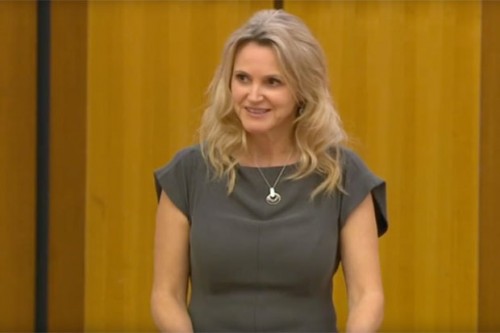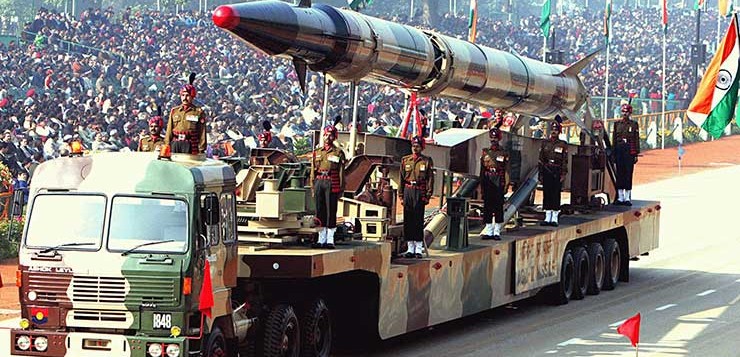As the South Australian Nuclear Royal Commission’s public hearings get underway, a parliamentary committee has largely endorsed the sale of uranium to India.
The deal which would see Australia export uranium to fuel India’s booming nuclear energy sector has received a lukewarm reception from the Joint Standing Committee on Treaties, with a report tabled yesterday ultimately endorsing the agreement but also dredging up a raft of serious concerns.
While “the bulk of the issues relating to specific provisions in the proposed agreement have been resolved to the Committee’s satisfaction,” it said that no uranium should be sold until India agrees to substantial changes.
In addition to this caveat, a dissenting report from Labor members Melissa Parke and Sue Lines aligned more closely with The Greens’ position that the treaty should not be signed at all in its current form.
The World Nuclear Association predicts that by 2050, India will expand the proportion of its energy mix sourced from nuclear power by around 600 per cent, and with Australia boasting roughly 30 per cent of the world’s uranium reserves the deal has the potential to provide for a substantial reduction in global greenhouse gas emissions.
Despite the admittedly significant benefits the deal could provide, Parke and Lines concluded that “the proposed Nuclear Cooperation Agreement does not provide ‘strong safeguards’ and undermines a bi-partisan safeguards policy that has operated successfully for almost 40 years”.
The Labor Party changed its national platform to allow for the sale of uranium to India at its National Conference four years ago, but Parke and Lines said that what is proposed does not satisfy the policy.
“We are particularly concerned that the [agreement]in its present form fails to provide adequate assurance against the possible use of Australian Obligated Nuclear Material to contribute to a military purpose,” Parke and Lines wrote.
India is not a signatory to the successful Nuclear Non-Proliferation Treaty (NPT) and experts who presented evidence to the Joint Select Committee on Treaties highlighted the lack of separation between military and civilian nuclear facilities, and that this could lead to Australian uranium being used to produce weapons.
Concerns, shared by The Greens, were also aired by Park and Lines around the possibility that the treaty assumes Australia has given its consent for the enrichment of nuclear material, and India’s scarred track record on safety.

In spite of this, the Committee itself recommended that no uranium be sold until the International Energy Agency verifies that civilian and military facilities are effectively separated, endorses the frequency and quality of onsite inspections as world’s best practice, and a thorough plan is devised for the decommissioning of spent reactors.
Overall the Committee took a positive view of the treaty and concluded that “the proposed agreement represents a prudent and balanced approach to dealing with the nuclear material needs of an emerging and energy hungry world power”.
Parke and Lines disagreed, arguing instead that the treaty as drafted now “entrenches India’s nuclear deviance and privileges it ahead of Australia’s other nuclear cooperation partners, thereby undermining the non-proliferation regime as a whole”.
“We strongly believe that an undertaking by India to act in accordance with accepted non-proliferation norms comparable to other nuclear-armed states is an essential criterion for Australian nuclear supply,” the Labor members wrote.
The Committee’s considerations were complicated by tricky geopolitical positioning, with consideration given to the fact India is ringed in by the nuclear powers of Pakistan and China.
It is in that context, however, that the treaty is seen more broadly as part of push to bring the sub-continent into the nuclear non-proliferation fold, and to slow its arms race against Pakistan.
It is estimated that India is in possession of between 90 and 110 nuclear warheads, but the Committee was at pains to point out that other nations like the United States also boast nuclear weapons.
Because they were ‘nuclear states’ and carried out testing prior to 1967, though, those states are able to possess a weapons arsenal and be signatories to the NPT whereas India, which did not carry out nuclear testing before 1967, would have to dump its weapons stock to ratify the NPT.
Canada and the United States have acknowledged this arbitrary, and arguably unfair, provision of the NPT, but their recently inked deals to provide India’s nuclear fuel cycle contain stronger safeguards than the treaty the Abbott government has negotiated.
Questions have been raised around why Australia can’t broker a deal at least as good, and the treaty faced criticism over the fact that without the dispute resolution mechanisms standard in other Australian supply agreements, India could escape a legal obligation to return nuclear material if it is found to have misused it.
There also appears to be no meaningful guarantee Australia could track where the nuclear material it provides ends up, and therefore, ultimately, whether it is used in civilian or nuclear facilities.
In its submission, the Australian Minerals Council estimated the deal could double the size of Australia’s uranium export industry, providing for up to 4,000 jobs and a $1.5 billion injection into the nation’s economy.
In its submission, the Australian Minerals Council estimated the deal could double the size of Australia’s uranium export industry, providing for up to 4,000 jobs and a $1.5 billion injection into the nation’s economy.
The Committee gave these economic benefits significant weight, and recommended the government deploy substantial diplomatic resources in an attempt to iron out the major sticking points and pave the way for a legally binding deal and the sale of uranium exports.
Yesterday, the South Australian Royal Commission into the Nuclear Fuel Cycle kicked off its first day of public hearings in Adelaide, rendering the prospect of a domestic nuclear industry, including power generation, very much alive as governments investigate the controversial industry’s potential role in tackling climate change.
It remains to be seen whether the government will implement the Committee’s recommendations, and the treaty could be signed off by the government without the need for the Senate approval it would likely win anyway. But the 15-member Committee did identify the possibility that the deal would violate other international agreements and be open to legal challenge.
Ultimately, the success of any export sales appears contingent on the Committee’s stated belief that “if signatories to the NPT are going to accept India back into the non-proliferation mainstream, the Indian Government is going to have to act expeditiously to prove its non-proliferation credentials as an emerging world power”.
Donate To New Matilda
New Matilda is a small, independent media outlet. We survive through reader contributions, and never losing a lawsuit. If you got something from this article, giving something back helps us to continue speaking truth to power. Every little bit counts.




